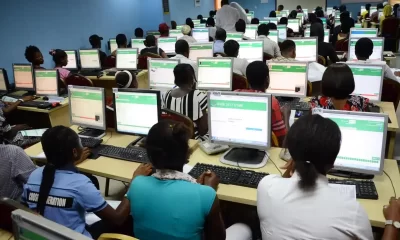News
Lagos on track to eliminate malaria with 1.3% prevalence rate — Commissioner
Malaria prevalence in Lagos State has dropped to 1.3 percent, bringing the state closer than ever to achieving malaria pre-elimination status, health commissioner Prof Akin Abayomi has said.
He broke the news at the 2025 World Malaria Day celebration at the Folarin Coker Staff Clinic in Alausa, Ikeja.
Prof. Abayomi described the progress as a major milestone in public health.
“Lagos is now at 1.3% malaria prevalence and fast approaching pre-elimination as defined by the WHO,” he said.
“We have moved from 15% in 2010 to just 3% in 2023, and now, in March-April 2025, we are at 1.3%. This is a historic achievement.”
Themed: “Malaria Ends With Us: Reinvest, Reimagine, Reignite,” the event featured an awareness walk and a strategic engagement with key stakeholders, including Society for Family Health (SFH), Goodknight Nigeria, WHO, and other partners.
Prof. Abayomi stressed that accurate diagnosis and treatment remain central to Lagos’ malaria control strategy.
“Early detection and correct treatment not only protect the infected person but also prevent further transmission. People must trust test results and avoid unnecessary treatment,” he warned.
The Commissioner raised concerns over the misuse of anti-malarial drugs, noting that while only 3% test positive, over half of the people with fever are still treated for malaria.
“This must change. We need more public education and responsible prescribing by health workers,” he said.
He emphasised the need to protect vulnerable groups like pregnant women and children under five.
“Their immune systems are weak. Every fever must be tested, and every confirmed case treated properly,” he said.
Prof. Abayomi credited the progress to strong political backing from Governor Babajide Sanwo-Olu.
“Mr. Governor has officially endorsed our malaria pre-elimination agenda. It’s not just a declaration, it’s backed by data, resources, and political will,” he said.
“We are proud that Lagos is leading the way in Nigeria and Africa.”
Special Adviser to the Governor on Health, Dr. Kemi Ogunyemi, said winning the fight against malaria requires community participation.
“This fight isn’t just in labs and hospitals; it must happen in our homes, schools, and markets,” she said.
She thanked partners like SFH and Goodknight for their support.
“Their collaboration helps us reach more people with life-saving information,” she added, urging the media to continue educating the public.
“Help us spread the word that not all fevers are malaria and not all mosquitoes are equal.”
Permanent Secretary, Lagos State Ministry of Health, Dr. Olusegun Ogboye, urged residents to get tested before treating fever. “Only 1.3 to 3 percent of fevers are malaria. So, most people buying antimalarials are wasting money,” he said.
He encouraged the use of the Ilera Eko health scheme for affordable testing and treatment. “Let’s make our being here today count by spreading this knowledge in our communities, workplaces, and schools.”
Project Director of the Society for Family Health (SFH) IMPACT Project, Dr. Stanley Ugah, reiterated the importance of testing before treatment. “Unnecessary use of antimalarials is a major concern. We’re providing test kits and quality drugs to change that,” he said.
Goodknight Nigeria Brand Manager, Oluwatimilehin Dada, expressed pride in supporting the state’s efforts. “We are here today to demonstrate our commitment to ending malaria,” he said. “Our products, like plug-ins and sprays, help families prevent mosquito bites.”
Representing the Country Manager of Maisha Meds, the Public Health Physician for the Malaria Pre-Elimination and Digitisation Project at Maisha Meds, Dr. Simisola Alabi, said the organisation is using technology to support malaria diagnosis and treatment.
“We work with pharmacists and clinics to ensure proper case management,” she said. “With digital tools and strong partnerships, we can bring malaria down to less than one percent.”
The Assistant Public Health Officer for the World Health Organisation (WHO), Aisha Abdulkareem, noted global progress but warned of setbacks due to climate change and conflict.
“Globally, 2.2 billion malaria cases and 12.7 million deaths have been averted in 20 years, but progress has stalled,” she said.
“We must reinvest, reimagine, and reignite our commitment.”
As the event ended, speakers called for better collaboration, increased awareness, and sustained investment. With the numbers trending down and support from key partners, Lagos could become Nigeria’s first malaria-free state.























